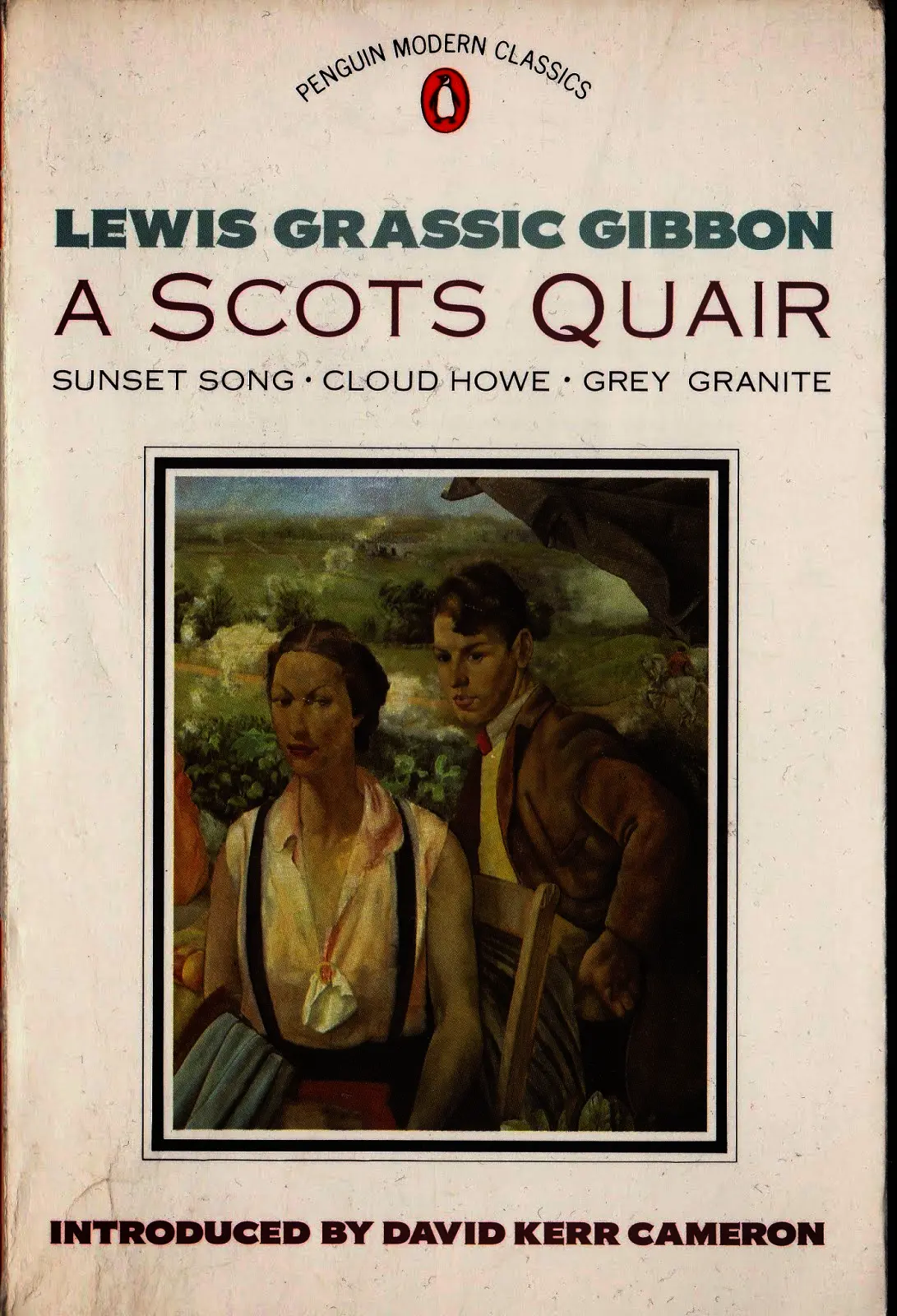
Another trilogy covering the first half of the twentieth century and centred on the life of one woman – but written by a man. Like Prichard, Gibbon describes social change through the lives of individuals. But his scope is wider; his aim is to tell the story of the Scottish people in this critical period. So the first book Sunset Song is set in the village of Kinraddie before and during the first world war, the second Cloud Howe in the small industrial town of Segget at the time of the General Strike, and the third Grey Granite in the port city of Duncairn during the National government of Ramsay MacDonald. All these locations are fictional but authentic, firmly anchored in the Howe of the Mearns, the broad vale that was in Kincardineshire but is now in Aberdeenshire.
At the centre of the trilogy stands Chris, the only character to appear in all three novels. Mostof thesetting and action are seen through her eyes, as she struggles with circumstances to become her own woman. But there are other voices too: of the many minor characters, and the collective “you” through which Gibbon expresses the perceptions and prejudices of most ordinary folk.
Be warned. This may not at first be an easy read. The style seems strange until the patternand the colour take hold of you and carry you away. It is written in English with just a few Scots words. But Gibbon’s aim was that his prose should reproduce the distinctive rhythm of Scottish speech, or at any rate that of the north east.
Sunset Song is generally held to be the most accomplished of the three novels. Indeed, it has more than once been voted Scotland’s most admired novel. It is the peak of the many writings of James Leslie Mitchell (1901-1935), Gibbon’s real name. This is not surprising because it is set in a place like the Arbuthnot of Gibbon’s childhood, a crofter community of hard-working, god-fearing peasants, whose way of life is threatened by the advance of capitalism, greatly accelerated by the profiteering of the first world war.
Gibbon celebrates the back-breaking toil alone in the fields, communal efforts as when the villagers come together to burn the whins, and the occasional festival or wedding when the whole community sings and dances together.
Chris grows up on a croft, torn between love of the land and its folk and her aspirations for education and a different life. But on her father’s death Chris defies aunt and uncle and takes on the tenancy of the farm. So when she marries incomer Ewan she provides him with both a home and a job. But Ewan is killed in the first world war. Chis later marries the new young vicar and goes with him to the mill town where he hopes to push his Christian socialism among the spinners. His lungs already shattered by poison gas, distressed by the loss of their baby andthe betrayalof the GeneralStrike, he dies, another victim of the war.
Chris follows her son, young Ewan, to the city where he is an apprentice in an engineering works. She becomes the joint owner of a boarding house, securing an income and a social role. Ewan, a somewhat privileged and isolated teenager, at first finds it hard to identify with the
other apprentices. A teacher friend converts him to socialism. Influenced by anti-Red prejudice they naively form a youth league to unite all on the left. Then Ewan leads a strike and is beaten up by the police. He sees that they’re up against the capitalist state, and joins the Communist Party.
At the end of the trilogy Chris and Ewan go their separate ways. He to accompany the Duncairn hunger marchers to London, there to become a CP full-timer. His mother to go back to the croft where she was born, and work it alone, having found independence at last.
Some readers have seen this as a defeat for Chris’s aspirations. Others see her return to the land as an alternative strategy to Ewan’s militant Marxism. It seems to me that Gibbon may have seen the two paths as complementary rather than conflicting. The social contradictions he has exposed could be resolved only by waging the class war to a successful conclusion. But after the revolution and the rebuilding will come what William Morris called an epoch of rest. A time that will allow, as Oscar Wilde pointed out, the full flowering of individuality. Gibbon/Mitchell was deeply immersed in the study of our hunter-gatherer forbears, who for the most part lived in harmony with nature and with each other. Perhaps for him Chris’s return to her roots stood for a revival of the primitive communist values of dignity, solidarity and freedom.